Emmanuel Udom reports on tributes for media leaders who died in the last fifteen months at the event tagged “An Afternoon of Tributes – Honouring the Dead, Inspiring the Living”
In Nigeria, it seems many journalists prefer to celebrate other people and neglect their own achievements, no matter how modest.
This is rather strange, as professional journalists are worth celebrating for always putting their lives and that of their loved ones on the line in order to serve as watchdogs of our society.
For an average journalist, dateline is a familiar word that propels them to source for and reports stories for publication or broadcast round the clock, even without being paid as it is becoming the norm in some media organisations now.
Therefore, most journalists do not have social lives, are strangers even in their homes, and do find it difficult to have a work-home balance.
Should journalists in Nigeria be celebrated while alive or dead? This was one question that was answered on Friday, May 21, 2021, at MUSON Centre in Lagos, where media leaders, editors, politicians, traditional rulers, reporters, bankers and others gathered to celebrate the life and times of nine departed media leaders.
The afternoon of tributes for the departed media leaders was organised by The Newspapers Proprietors Association of Nigeria (NPAN), Nigerian Guild of Editors (NGE), Nigeria Union of Journalists (NUJ), and Broadcasting Organisations of Nigeria (BON).
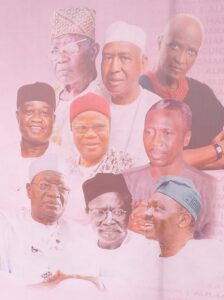
The departed media leaders honoured at the occasion were: former Lagos State Governor, Alhaji Lateef Jakande, former President of NPAN, Malam Ismaila Isa, former Editor, Sunday Times, Mr Gbolabo Ogunsanwo, former General Manager, Lagos State Broadcasting Corporation, Mr Bisi Lawrence, Former Managing Director of News Agency of Nigeria (NAN), Malam Wada Maida, Founding Publisher, Leadership Newspapers, Mr Sam Nda-Isaiah, former Director-General of Voice of Nigeria, Mr Ben Egbuna, former Editor, Daily Express, Mr Eddie Aderinokun, and former Information Minister, Prince Tony Momoh.
In his keynote address, Vice-President, Prof Yemi Osinbajo, praised the role of the media in Nigeria’s political history, saying that before the emergence of a greater country, “gatekeepers in the fourth estate must demonstrate a greater awareness of the sensibilities and sensitivities of our society.”
Osinbajo named the late Nnamdi Azikiwe, Ernest Ikoli, Anthony Enahoro and Herbert Macaulay, who first established themselves as journalists of repute, as the media leaders that fought for the independence of Nigeria.
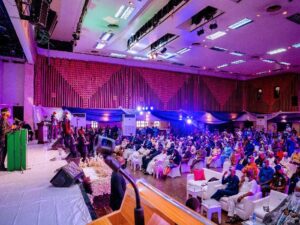
Against the background of the situation in the country, Osinbajo noted that the media can help to promote a climate of civility in which even the most contentious national issues can be discussed in full and frank terms without degenerating into chaos.
“Debates over our country’s future will always be intense and passionate but they need not be toxic or polarizing.
“Let us reject the temptation to fracture our society and chose instead to elevate those constructive elements in our midst that can promote justice, healing, and togetherness.”
Osinbajo remarked that the former Minister of Information and Culture, Prince Momoh’s battle for press freedom won him praise in the constitutional annals of Nigeria.
He recalled Momoh’s argument that journalists had the constitutional obligation to hold the government accountable at all times.
Earlier in his welcome address, Malam Kabiru Yusuf, President, The Newspapers Proprietors Association of Nigeria, NPAN, said the nine media leaders who passed on in the last 15 months were all men and that it is difficult to speak of them in the past tense, as they still live on in the heart and minds of great Nigerians.
“There are traces of them everywhere; in the families that they raised, the colleagues they mentored and the institutions they led.
“That is why we do not think of them in the past tense but in the present and future,’’ Yusuf said.
Tributes
Mr Gbenga Adefaye-Provost, Nigerian Institute of Journalism.
In his tributes on the life and times of Mallam Isa, who passed on July 20, 2020, he said Isa served as President of NPAN from 1995 to 2002.
Most journalists within and outside Nigeria have contacts with the journalism institution, either as mentors or mentee.
Sam Amuka, Publisher, Vanguard Newspaper
Amuka described the former President of the Nigerian Institute of Journalism (NIJ), Malam Ismaila Isa, as a man who spent his life servicing other people’s lives and organisations.
He added that Isa, who was also a patron of the NPAN was a blessing to the Nigerian media.
“He used his influence to raise funds to rebuild the new NIJ House in Victoria Island at no cost to the NIJ,’’ he said.
Prince Nduka Obaigbena-Publisher, THISDAY Newspaper
Obaigbena in his tributes to Mallam Wada Maida said the late media leader facilitated his interview with Muhammed Buhari when he was military head of state and when Buhari was toppled in a coup by Ibrahim Babaginda. The same Maida also ensured that he interviewed the first military president of Nigeria.
Obaigbena added that Maida helped to revive the NGE in 1988.
“When he left NAN, he built a headquarters for them, organised the entire place and decided to go into private business.
“He was one of the early investors in Daily Trust Newspapers and also the key investor in People’s Daily,’’ he said.
Mr Tony Akiotu-Managing Director, DAAR Communications
Akiotu in his tributes described Lawrence, who died November 11, 2020, as a man of many parts, who inspired him and others, dedicated, loyal and fearless.
He said Lawrence, a.ka Bizlaw, as vice president of the Nigerian Football Association, worked hard to ensure that Clement Westerhof was appointed the coach of the Green Eagle and Nigeria soared on football during his tenure.
Mr Lade Bonuola-Consultant, The Guardian Newspaper
Speaking on the life and times of Chief Ogunsanwo, he said the late media leader was respected, admired and adored while holding forth as editor of the defunct Sunday Times and Daily Express.
He said he was a man who paid great attention to human capital development, with an assurance of staff keeping their jobs while still schooling.
He was known for keeping public officials on their toes by demanding accountability.
Mr Azubuike Ishiekwene, Editor-in-Chief, Leadership Newspaper
In his tributes to Sam Nda-Isaiah, former publisher, Leadership newspaper, said his late boss was a bridge builder, a destabilised Nigerian, down-to-earth, and a visionary leader, who contested the presidential election and lost.
“He abhorred drawing attention to himself; he is a man of infectious zeal, boundless energy and patriotic.
“He was a bridge-builder and an ardent believer in one Nigeria,’’ he said.
Mr Lanre Idowu,-CEO Diamond Publications Ltd
He described Mr Eddie Aderinokun, former Editor, Daily Express as a multi-talented artist, who was at home in journalism but also in music and sports.
Idowu said that Aderinokun was a man of high standards in lifestyle, home life and profession.
He noted that Aderinokun wrote nine poetries, including ‘Ebony of Snow’, ‘Indigo Tears’ and ‘Dark Things are Here’.
Mr John Momoh-Chairman-Channels TV
In his tributes, Momoh described Egbuna, the late broadcast journalist as the golden voice of the network news of the Federal Radio Corporation of Nigeria (FRCN) in the 1980s and 1990s.
He said he was a thoroughbred journalist whose footprints can be felt in both private and public space.
According to Momoh, Egbuna, who was also an Executive Director of Voice of Nigeria (VON), believed in doing the right things, doing things right and practising journalism with integrity.
“He was a living proof on how a fine journalist should be; a good friend to many.’’
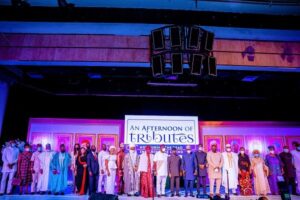
Mr Ray Ekpu-Director, May Five Media
Speaking on Prince Tony Momoh said that the late first class Prince from Auchi inspired his becoming a journalist when he applied to join The Nigerian Chronicle, a Cross River State publication as an editor.
His words “ The management of the newspaper contracted Momoh conduct oral and written interviews on the applicants, which I was one an at the end of the day, I was among those selected based on merit.
“Momoh stood on his grounds and insisted the Cross River State Service Commission must hire us based on merit,” he said.
Ekpu described Momoh as a man that believed in God though he was neither a professed Christian nor Moslem, saying that Momoh’s father had 257 children. He was forthright, a humanist, bold, courageous, and yet simple,
Chief Segun Osoba-Life Patron, NPAN
Osoba, a veteran of the journalism profession and former governor of Ogun State, in his tribute described Lateef Kayode Jakande as the grand-father of journalism.
While thanking the organizers of the event for the large turnout, Osoba said that Jakande was the first African to be elected as chairman of International Press Institute, as well as Editor, Editor-in-Chief and eventually Managing Director of Nigerian Tribune at the time the then government was desperately trying to suppress the publication.
The former Ogun state governor said that the contributions of LKJ to journalism was bigger than while in government and suggested that researchers and historians should be hired to document the works of Jakande into a book.
Most of the speakers at the event agreed that outstanding reporters, editors, media managers should be honoured yearly for instance while still alive as this could bring greater glory and attention to the profession than when they die
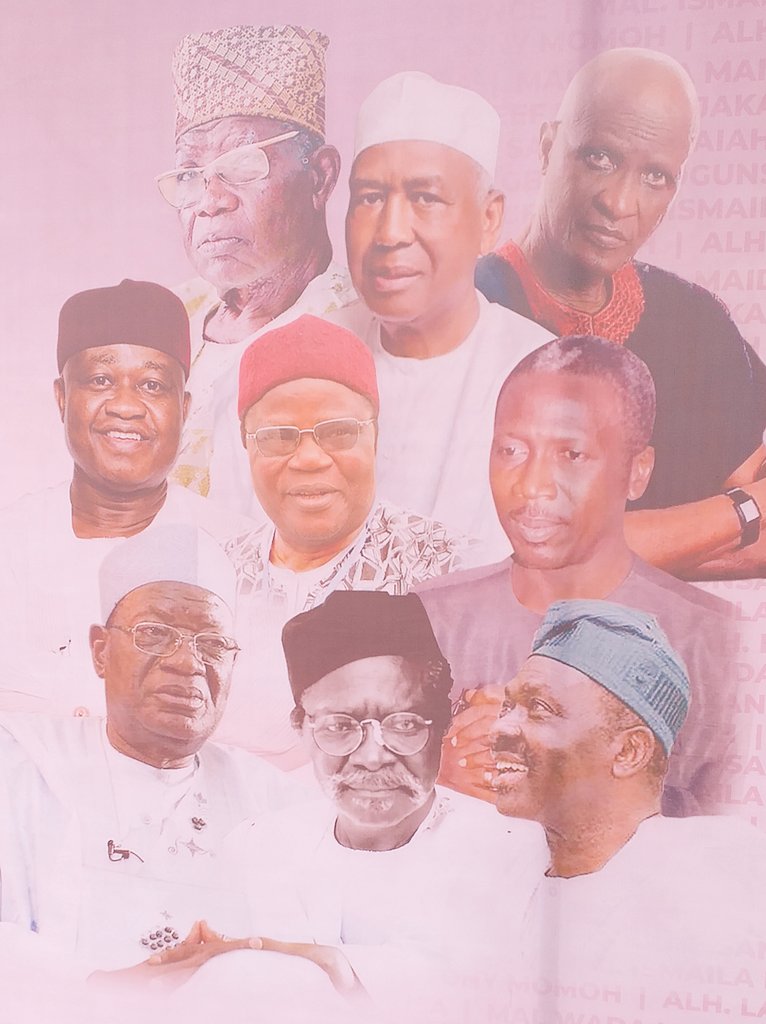


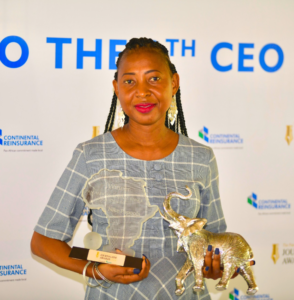

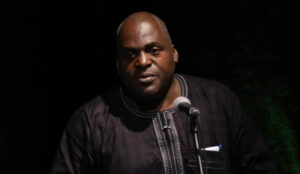
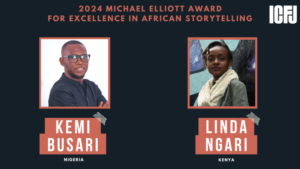
Exploits of late Nigerian media leaders
[…] the original article […]